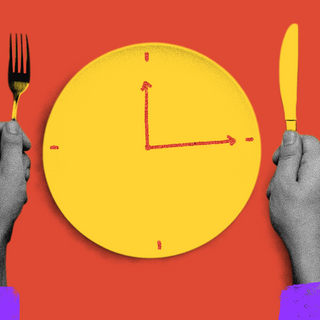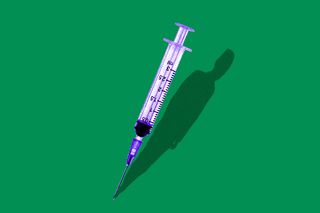
HPV Vaccines Don’t Just Prevent Cervical Cancer, But Also Penile, Anal Cancers. Men Should Get it Too.
Besides protecting them against penile and anal cancers, the HPV vaccine can also prevent men from spreading the HPV virus to others.

More women die from cervical cancer in India compared to any other country in the world, a 2013 study showed. In fact, here, every eight minutes, one woman dies of cervical cancer. The most common strains of the human papillomavirus — commonly called HPV — are the leading causes of cervical cancer in women. Vaccines against HPV exist. Preventing these infections through timely vaccinations is therefore paramount — especially since most sexually active women are likely to be infected at some point in their lives, according to the WHO. However, numerous studies have shown that the vaccine is important for men too — but this is a fact that’s often neglected in public health policies around HPV.
HPV — the most commonly transmitted STI in the world — doesn’t just cause cervical cancer; it can cause penile, anal, and oral cancers too, which affect men. With research suggesting that HIV-positive men, who are in sexual relationships with other men, are especially vulnerable to anal cancers caused by HPV, vaccinating men becomes even more critical. “Women can at least be screened for cervical cancer… But for men, there is no screening for anal cancer, or the other cancers, that might develop from HPV. That is one of the reasons that you should give the HPV vaccine to boys,” says Dr. Anna Wald, a physician and a professor of medicine at the University of Washington.
Besides protecting them against cancers, the vaccine can also prevent men carrying the virus from spreading it to their sexual partners, including women. Since most people don’t show any symptoms upon contracting HPV, they often end up being unwitting transmitters of the virus. By getting vaccinated, not only do men protect themselves and their sexual partners, but also contribute to the overall reduction in the spread of the virus across the population. Research has also proved the effectiveness and safety of the vaccine among the male population.
In India, however, the HPV vaccine is currently advised for administration to women only. The Indian Academy of Pediatrics recommends administering the first dose of the vaccine for girls between the ages of nine and 10 because they’d be able to “mount a superior immune response compared to older individuals.” Yet, the uptake in the female population of the country is dismal due to the stigma against sexuality and myths around risky sexual behavior. As such, routinely vaccinating men becomes even more crucial because not only is a (straight) man’s sexuality shrouded in far less stigma, there are also fewer barriers to accessing to healthcare for men.
Related on The Swaddle:
Body Matters: The Taboo Around STI Testing
Dr. Kanika Gupta, senior director of surgical oncology at Max Hospital in Ghaziabad, espouses men being vaccinated against HPV for precisely this reason. “You increase the herd immunity and decrease the virus’ effect altogether in the population,” Dr. Gupta told The Indian Express. “HPV infections can cause several types of cancers later in life for men… As a matter of fact, HPV cancers are now the most common type, and affect more men than women.”
In the U.S., between 2013 and 2017, the number of women diagnosed with HPV-associated cancers was around 25,000; as for men, it was about 19,000. Between 2015 and 2019, however, the number of women rose by a thousand to 26,000; for men, the difference was two-fold, with the rise in cases going over 21,000. At present, the incidence of head and neck cancers caused by HPV — which is four times as common in men than in women — has overtaken that of cervical cancer in the U.S.
In India, however, the HPV vaccine is currently recommended for administration to women only. Given that HPV vaccines have already earned the reputation of being a “women’s issue,” it might not be the easiest to convince men to get vaccinated.
As Liesl Goecker wrote for The Swaddle in 2018, “[M]aking the case for men’s health would do nothing but hasten activities that promote women’s health. But in this case, it’s still likely to be an uphill battle. Gay men stand to benefit most from an HPV vaccine for boys and men. Unfortunately, most arguments against the HPV vaccine are rooted in an all-too-common conservatism that finds both female sexual agency and homosexuality unacceptable. In order to solve the public health problem that is HPV, India must change its mindset, as much as it must offer the vaccine to its boys and girls.”
Related on The Swaddle:
HPV May Contribute to Cardiovascular Disease as Well as Cervical Cancer
At present, a number of countries — including New Zealand, Canada, Australia, Hong Kong, the Netherlands, the U.K., and the U.S. — recommend HPV vaccinations for men. With increasing global blueprints and strides in medical research, in addition to the Serum Institute of India recently announcing the country’s first indigenous HPV vaccine, things might change soon.
“[T]here is a scope of use of HPV vaccine in men in India as well… we are still awaiting recommendations,” says Dr. Gunjan Gupta Govil, founder and chairman of the Gunjan IVF World Group. “It will give one protection against penile cancer and warts in more than 90-95% of cases. The best age group [for] boys [to be vaccinated] is 11-12 years, and the same goes for girls as well… The advantage of taking this HPV vaccine before the start of sexual maturity is that you are not infected with HPV, and the vaccine is most effective.”
But just because someone may not have been vaccinated before they matured sexually, even before they began engaging in sexual activities, doesn’t mean there’s no point in them getting vaccinated anymore. One can get vaccinated against HPV up to the age of 45 — and this includes men.
“There is a delay between infection and the development of cancer, so there is a big reservoir of people already potentially at risk,” explains Dr. David Pfister, a medical oncologist who specializes in head and neck cancer. “Developing something like a Pap [smear] test for throat cancer would be a game-changer… [But u]ntil an effective and reliable screening test is developed, patients should stay up to date on their HPV vaccines, know how the disease is acquired, and take any suspicious symptoms like a lump in the neck or blood in the phlegm to their doctor or dentist.”
Devrupa Rakshit is an Associate Editor at The Swaddle. She is a lawyer by education, a poet by accident, a painter by shaukh, and autistic by birth. You can find her on Instagram @devruparakshit.
Related


Do Antidepressants Really Reduce People’s Sex Drive?
